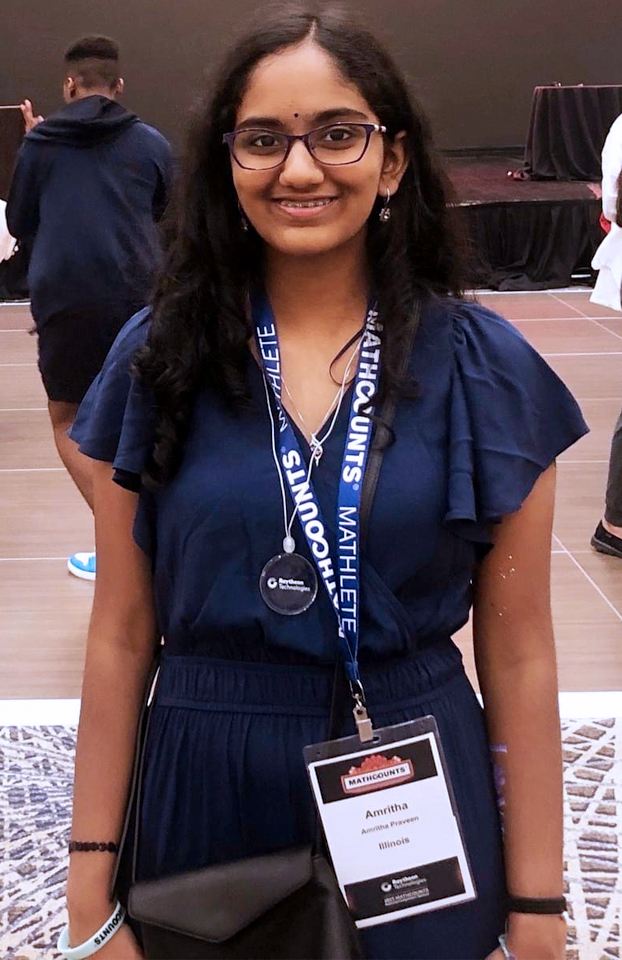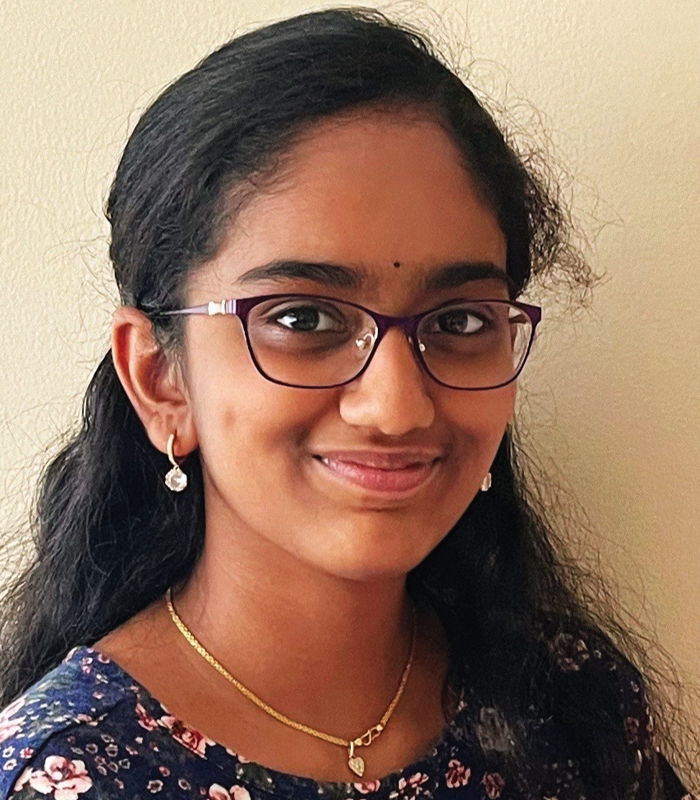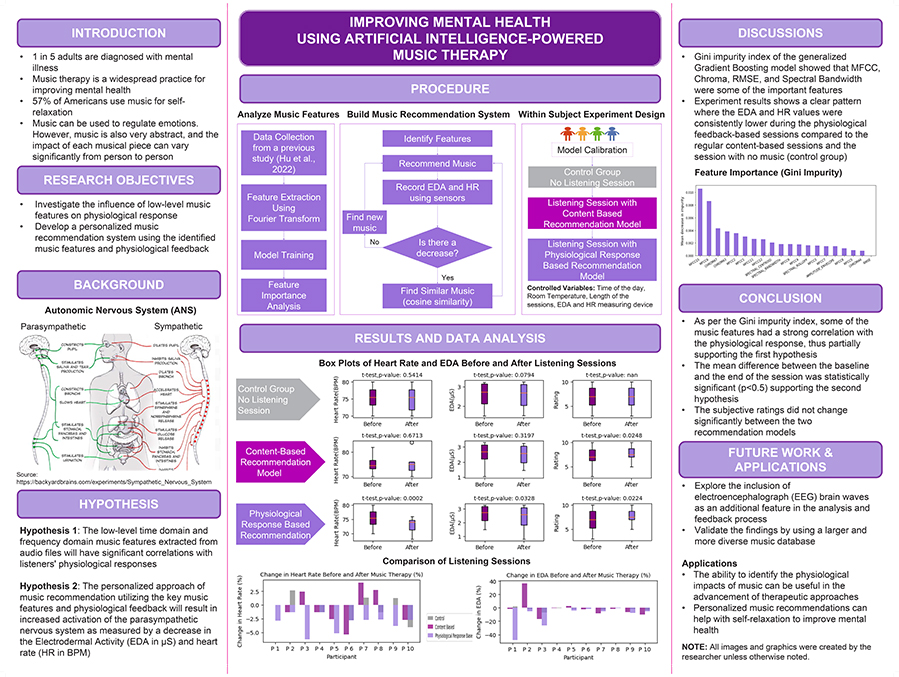Amritha Praveen
8th Grade, Aptakisic Junior High School
Buffalo Grove, IL
Amritha designed a software that personalizes music therapy by automatically filtering songs based on a person’s heart rate and skin electrical activity.
Improving Mental Health Using Artificial Intelligence-Powered Music Therapy
VIEW POSTERProject Background
“As I play different styles of music, I have experienced the different emotional responses evoked,” Amritha says. She plays several instruments. And her brother has received music therapy, an approach to treating mental health conditions. But Amritha noticed there was no way to measure the effectiveness of this therapy or provide any feedback if the music is helping or not. “This motivated me to develop a recommendation model that used physiological signals as feedback,” Amritha says. She decided to create a system that measures bodily responses, like heart rate, in real time to find the most effective music for an individual’s music therapy.
Tactics and Results
Amritha first determined which musical features, like pitch and range, contributed most to physiological signs of relaxation. Those signs include lowered electrical activity in the skin — a measure of sweat gland activity — and reduced heart rate. She then built a music library and recommendation system software that could filter content based on the important musical features. She hooked up sensors that detect a music listener’s skin and heart’s responses. If these signals suggest the listener is relaxed, the software finds similar music. If not, it tries different music. To test the system, Amritha recruited 20 teenage volunteers. She recorded their baseline heart rate and skin electrical activity, then had them listen to music with the physiological feedback, without feedback and no music. Amritha consistently recorded lower heart rate and skin electrical activity when using the feedback system compared with the other two session types. During feedback sessions, there was also a big difference between physiological measurements taken at the beginning versus at the end. “Music can be used deliberately to regulate our emotions,” Amritha says. “However, music is also very abstract, and it is interesting to study the correlation between musical features and physiological responses.”

Beyond the Project
Including brain wave measurements in the feedback process could be helpful, Amritha says. She also wants to explore using a more diverse range of music.
Other interests
Amritha enjoys math and playing the piano, viola and veena, a string instrument that originates from India. With the veena, she says, “the strings mimic the human voice when played skillfully.” Amritha would like to become a neurologist in the future. “I envision a career path where I can apply my mathematical skills to advance the field of neurology and provide assistance and support to those in need.”


